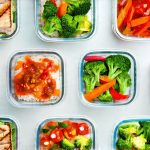Maintaining optimal urological health often hinges on lifestyle choices, and diet plays a surprisingly significant role. Many individuals experience issues ranging from frequent urination to discomfort that can be partially managed – and sometimes even prevented – through thoughtful food selections. However, modern life is busy. Between work, family obligations, and social commitments, finding the time for elaborate meal planning and cooking often feels impossible. This article isn’t about restrictive diets or complex recipes; it’s about practical, achievable meal prep strategies tailored to support urological wellness within the constraints of a hectic schedule. We will focus on building simple routines that integrate nourishing foods into your week without adding undue stress.
The goal is not merely to avoid foods potentially irritating to the urinary tract but also to proactively incorporate nutrients known to promote overall bladder and prostate health – all while keeping life manageable. Think of it as proactive self-care, not deprivation. This approach isn’t about eliminating entire food groups; rather, it’s about making informed choices and preparing ingredients in advance so healthy options are readily available when you need them most. We will explore adaptable meal prep ideas, focusing on convenience and nutritional benefits for those seeking to prioritize their urological health amidst a demanding lifestyle. Consider starting with some basic meal frameworks to structure your planning.
Understanding Dietary Considerations for Urological Health
The relationship between diet and urological function is complex, but several key principles apply broadly. Certain foods and beverages can act as bladder irritants, potentially exacerbating symptoms of overactive bladder or interstitial cystitis. These often include caffeine, alcohol, spicy foods, acidic fruits (citrus, tomatoes), carbonated drinks, and artificial sweeteners. However, individual sensitivities vary greatly; what bothers one person may not affect another. Beyond avoidance, the focus should shift to incorporating foods that support healthy function. Adequate hydration is paramount – water should be the primary beverage choice. Fiber-rich foods promote regularity, reducing strain on the pelvic floor muscles. Specific nutrients like antioxidants and omega-3 fatty acids are also believed to play protective roles in prostate health.
It’s crucial to remember that dietary changes are often most effective when combined with other healthy habits, such as regular exercise and stress management techniques. Furthermore, while this article discusses general principles, it is not a substitute for professional medical advice. If you are experiencing urological symptoms, it’s vital to consult with your healthcare provider for personalized recommendations and diagnosis. Dietary adjustments can be a supportive element of a comprehensive treatment plan but should not replace medical intervention. Planning ahead with a solid 3-meal plan can ease the process.
The key isn’t perfection, but consistency. Small, sustainable changes over time yield far greater benefits than drastic, short-lived efforts. Meal prepping allows you to proactively address these dietary considerations, ensuring that healthy choices are readily available even when time is limited. It moves beyond simply knowing what’s good for you and translates that knowledge into actionable habits. You might also find it helpful to explore easy pantry swaps for bladder sensitivity.
Simple Breakfast Solutions
Breakfast often gets skipped or rushed, leading to unhealthy choices. However, it’s an excellent opportunity to begin the day with a bladder-friendly meal. Meal prepping breakfast components can save significant time during busy mornings.
- Overnight oats are incredibly versatile and easy to prepare. Combine rolled oats, plant-based milk (almond or oat are good options), chia seeds, and a touch of maple syrup in a jar or container the night before. In the morning, add berries (blueberries are particularly rich in antioxidants) or sliced banana. Avoid citrus fruits if you’re sensitive to acidic foods.
- Hard-boiled eggs provide protein and essential nutrients without irritating the bladder. Boil a batch on Sunday and store them in the refrigerator for quick breakfasts throughout the week.
- Smoothie packs: Pre-portion frozen fruit (berries, mango), spinach or kale, and a scoop of plant-based protein powder into freezer bags. In the morning, simply blend with water or plant-based milk for a quick and nutritious breakfast.
These options are all relatively non-irritating and offer sustained energy to start your day. Remember that portion control is also important; excessive intake of any food can potentially cause discomfort. Preparing these elements in advance removes barriers to making healthy choices when you’re short on time or energy. For more detailed ideas, consider gentle morning prep routines.
Lunchbox Strategies for On-the-Go
Lunch is another meal often sacrificed in favor of convenience, leading to less-than-ideal dietary choices. Prepping lunches allows you to control ingredients and avoid potential irritants found in takeout food.
- Mason jar salads are a visually appealing and practical option. Layer dressing at the bottom, followed by hearty vegetables (carrots, cucumbers), protein (grilled chicken or chickpeas), and leafy greens on top. The salad stays fresh for several days.
- Leftovers from dinner can be repurposed into lunch. This minimizes food waste and saves time. Packaged with a side of whole-grain crackers or a small portion of fruit, it’s a balanced meal.
- Bento box style lunches: Divide a container into sections containing different components – protein (turkey slices), complex carbohydrates (quinoa or brown rice), vegetables (cucumber sticks, bell pepper strips), and a healthy snack (a handful of almonds).
The emphasis should be on whole, unprocessed foods that are easy to digest and won’t exacerbate urological symptoms. Avoiding spicy sauces or heavily seasoned dishes is also advisable. Hydration remains key – always pack a bottle of water with your lunch. Planning for meals on the go can be especially helpful.
Dinner Prep & Batch Cooking
Dinner often feels like the biggest challenge for meal prepping due to its complexity. However, batch cooking can significantly simplify the process.
- Roast a large tray of vegetables (broccoli, sweet potatoes, Brussels sprouts) on Sunday and use them throughout the week as side dishes or additions to other meals.
- Prepare a big pot of quinoa or brown rice. These grains are versatile and can be used in salads, bowls, or as a base for protein and vegetables.
-
Cook lean protein sources (chicken breast, fish, tofu) in bulk and store them in the refrigerator.
-
One-pan meals: Combine protein, vegetables, and seasoning on a baking sheet and roast until cooked through. Minimal cleanup required!
- Slow cooker recipes are incredibly convenient. Simply add ingredients to the slow cooker in the morning and come home to a ready-made meal. Focus on recipes that use bladder-friendly ingredients and avoid excessive spices.
- Soups are another excellent option for batch cooking. They’re hydrating, nutritious, and can be easily frozen for future meals.
Remember to consider your individual sensitivities and adjust recipes accordingly. Meal prepping isn’t about adhering to a rigid plan; it’s about creating flexibility and making healthy choices easier. The goal is to reduce stress and improve overall well-being, including urological health. You can also explore plant-based meal ideas for additional inspiration.
It’s important to remember that consistency trumps perfection when it comes to dietary changes. Even small adjustments, made consistently over time, can have a significant impact on your overall health and comfort. Don’t be discouraged by occasional slip-ups; simply refocus on making healthy choices at your next meal.





















